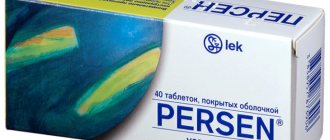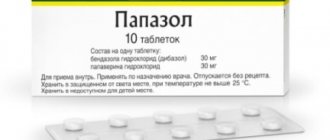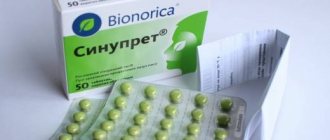Vascular thrombosis leads to the development of serious diseases that are life-threatening. Almost all patients at risk are advised to take drugs based on acetylsalicylic acid as a preventative measure for the disease. The drug "Thrombo ACC" also has an antiplatelet effect. It belongs to the group of non-steroidal anti-inflammatory drugs. Indications for use of Thrombo ACC, recommended dosage and treatment regimen are described in detail by the manufacturer in the instructions. It is imperative that you read this information before starting treatment.
General description of the drug
"Thrombo ACC" is a representative of non-steroidal anti-inflammatory drugs. These drugs reduce the symptoms of inflammation, which usually accompany many pathological conditions. Despite the popularity of NSAIDs, they should be used with extreme caution. This treatment is fraught with serious side effects.
Thrombo ACC is often prescribed for the treatment of cardiovascular disorders. The medicine is produced by an Austrian pharmaceutical company. The main effect of the drug is aimed at reducing platelet aggregation, reducing the formation of blood clots, relieving the inflammatory process and pain relief.
"Trombo ACC": composition and release form
Before using the medication, the patient must familiarize himself with the components included in the composition. The main active ingredient is acetylsalicylic acid, popularly known as aspirin. "Trombo ACC" is available in the form of tablets coated with a special film coating. It protects the gastric mucosa from the negative effects of acetylsalicylic acid and dissolves only in the intestines. One such tablet contains 50, 75 or 100 mg of the active ingredient.
Colloidal silicon dioxide, lactose monohydrate, potato starch, and microcrystalline cellulose are used as auxiliary components.
What is special about this medication?
Initially, you need to understand in what situations a patient can be prescribed this drug. So, what kind of drug is this, “ThromboAss”? The instructions for use state that this medication contains an active substance such as acetylsalicylic acid.
Belongs to a group of non-steroidal drugs that can relieve inflammation. This remedy also has the following effects:
- analgesic (that is, designed to relieve pain);
- antiplatelet (preventing platelet aggregation);
- antipyritic (we are talking about reducing elevated body temperature);
- anti-inflammatory.
Mechanism of action
Acetylsalicylic acid has long been known in medicine and is used for the manufacture of various drugs. The substance provides an anti-inflammatory effect due to the selective blocking of the functions of COX 1 (cyclooxygenase enzyme). This causes inhibition of the synthesis of thromboxane, prostaglandins and prostacyclins - substances that provoke the development of the inflammatory process. Platelets cannot form a new enzyme, which allows the antiplatelet effect to manifest itself to a greater extent due to a decrease in their adhesion. This allows you to take the medicine in small doses.
Acetylsalicylic acid prevents blood clotting, enhancing its fibrinolytic activity. The substance also provides analgesic and antipyretic effects.
Pharmacological properties
Thrombo ACC is included in the group of non-steroidal drugs with anti-inflammatory effects (NSAIDs).
The active component of the product is acetylsalicylic acid, which is part of salicylic acid in the form of an ester.
The principle of action of the main component occurs due to the inactivation of the COX-1 enzyme with irreversible action. Next, the synthesis of prostaglandins, prostacyclins and thromboxane is blocked. Then platelet aggregation, adhesion and blood clot formation decrease. This is achieved by reducing the synthesis of thromboxane A2 in platelets.
When the drug enters the body, the fibrinolytic activity of the blood increases and the concentration of component K decreases - interdependent conditions responsible for coagulation (II, VII, IX, X). Due to the fact that platelets cannot synthesize COX again, when exposed to acetylsalicylic acid, an antiplatelet effect occurs in them.
Indications for use
The instructions recommend prescribing “Thrombo ACC” for the following diseases:
- prevention of thromboembolism after vascular surgery;
- prevention of blood clots in deep veins;
- primary and secondary prevention of cerebral stroke;
- prevention of transient cerebrovascular accident;
- diabetes;
- high blood pressure;
- smoking;
- severe obesity;
- unstable angina;
- chronic venous insufficiency;
- varicose veins;
- primary and secondary prevention of myocardial infarction;
- hyperlipidemia.
Also, a drug based on acetylsalicylic acid is recommended for all elderly people. Indications for the use of Thrombo ACC are mainly related to the prevention of cardiovascular pathologies. Due to the low content of acetylsalicylic acid, the tablets can be taken for a long time. The treatment regimen and dosage of the drug must be determined by a specialist.
Medication dosage
It should be noted that only a doctor can prescribe the non-steroidal anti-inflammatory drug Thrombo ACC for treatment. The dosage of the medication will depend on the patient's diagnosis. To prevent strokes and heart attacks, the tablets should be taken for a long time. Daily dosage – 50-100 mg (one or two tablets per day). The same dose is indicated for the prevention of angina pectoris. Patients at risk of recurrent transient ischemic attack are recommended to take 75-300 mg of acetylsalicylic acid per day.
If there is a risk of thromboembolism of the pulmonary artery or deep veins, increase the dosage of the drug "Thrombo ACC". 100 mg is the minimum dose of the active substance for such patients. According to indications, it can be increased to 200 mg per day. The medicine should not be taken simultaneously with other medications from the NSAID group. The duration of therapy is determined individually.
Medicine "ThromboAss": instructions for use of the drug
Be sure to also tell us how to take this medicine correctly. After all, it is very important to correctly observe the dosage. Otherwise, you can greatly harm your body.
So, this drug is sold in the form of tablets coated with a special enteric coating. It is best to take this medicine before meals. It must be remembered that it is best not to chew or crush the tablet first, but to swallow it whole. Be sure to drink plenty of clean water.
Separately, it is necessary to say about the duration of the course of treatment. So, it may vary depending on the patient’s illness, as well as the stage of advanced disease. The duration of treatment is determined only by the attending doctor. On average, experts prescribe from 50 to 100 mg of this drug once a day.
In what cases is it prohibited to take the medicine?
The thinning properties of acetylsalicylic acid are indeed important in some cases. But on the other hand, such a therapeutic effect poses a serious threat to life if the patient has at least one of the following diseases:
- erosions and ulcers of the gastrointestinal tract;
- hemorrhagic diathesis;
- bronchial asthma;
- age up to 16 years;
- intolerance to acetylsalicylic acid;
- internal bleeding;
- acute renal or liver failure;
- lactose intolerance;
- chronic heart failure;
- intolerance to other non-steroidal anti-inflammatory drugs;
- recurrent hay fever in combination with bronchial asthma and aspirin intolerance.
The drug should not be taken by women who suffer from large blood loss during menstruation. With extreme caution, tablets are prescribed to patients who have a history of chronic respiratory diseases.
Contraindications for use
The drug Thrombo ACC is contraindicated for use for the following diseases:
- in case of acute peptic ulcer of the stomach and duodenum;
- cannot be taken during hemorrhagic diathesis;
- during bleeding of the stomach or intestines;
- if there are pronounced symptoms of renal and liver failure;
- for bronchial asthma caused by the use of NSAIDs and salicylates;
- during the period of chronic heart failure;
- during a combination of recurrent stage polyposis, bronchial asthma and intolerance to acetylsalicylic acid;
- if hypersensitivity to acetylsalicylic substance and other NSAIDs occurs;
- should not be taken if you have lactase deficiency, lactase intolerance, or glucose-galactose malabsorption;
- when taken together with Methotrexate at a dose of 15 mg for 7 days or more;
- should not be taken in the second and third trimester of pregnancy and during lactation;
- should not be taken by adolescents under 18 years of age.
In addition, according to the indications of Thrombo ACC, it should be taken with caution in the following conditions:
- during hyperuricemia;
- if you have gout;
- during peptic ulcer of the stomach and duodenum;
- with liver and kidney failure;
- hay fever;
- bronchial asthma;
- during nasal polyposis;
- during diseases of the respiratory system in a chronic form;
- if there are allergic reactions to painkillers, NSAIDs, antirheumatic drugs, or drugs with anti-inflammatory effects;
- before an upcoming operation, even not a very complicated one.
To avoid unpleasant consequences, you should take it carefully with the following products:
- together with Methotrexate in a dose of no more than 15 mg for 7 days;
- in combination with anticoagulants, with thrombolytic and antithrombolytic agents ;
- with Digoskin ;
- in combination with hypoglycemic drugs for internal use and with insulin;
- with valproic acid ;
- in combination with selective inhibitors that have serotonin reuptake;
- with Ibuprofen ;
- with alcoholic drinks .
Taking the drug during pregnancy
During drug studies, no connection was established between congenital defects and taking Thrombo ACC. However, experts recommend refraining from taking pills in the first and third trimester. Exceptions are cases in which the expected benefit to the mother is greater than the risk of developing congenital pathologies. Only the attending physician can prescribe a medicine to thin the blood of the expectant mother.
If necessary, medication can be prescribed after childbirth. A small dose of acetylsalicylic acid contained in Trombo ACC tablets (50 mg) does not have a negative effect on lactation. If long-term therapy is necessary, breastfeeding should be canceled or interrupted.
Drug interactions Thrombo ass
Concomitant use of other salicylates and other NSAIDs should be avoided. Thrombo ACC enhances the effect of anticoagulants, NSAIDs, hypoglycemic agents, methotrexate. When used simultaneously with GCS and ethanol, the likelihood of manifestation of the ulcerogenic effect of the drug and the risk of gastrointestinal bleeding increases. Thrombo ACC reduces the effectiveness of diuretics (spironolactone, furosemide), antihypertensive and uricosuric drugs; if it is necessary to use Trombo ACC and the above agents simultaneously, the interval between their administration should be at least 1–3 hours. The combined use of antacids does not have a significant effect on the bioavailability of acetylsalicylic acid.
Features of the use of the medicine
The inhibitory properties persist for several days, which may cause bleeding during surgery or during the recovery period. Therefore, you should refrain from taking pills before surgery.
On the part of the hematopoietic organs, the risk of developing side effects increases significantly when taking Methotrexate and Thrombo ACC simultaneously (the price of the drug depends on the dosage of the active ingredient). High doses of acetylsalicylic acid have a hypoglycemic effect. This should be taken into account in patients with diabetes mellitus receiving insulin and oral hypoglycemic medications.
It is not recommended to combine ibuprofen with acetylsalicylic acid. The former has a negative impact on the cardioprotective effect of aspirin, which may have serious consequences for patients with cardiovascular disease.
People who are predisposed to gout should avoid drugs based on acetylsalicylic acid. The instructions do not recommend taking “Thrombo ACC” (tablets) simultaneously with anticoagulants, antiplatelet medications and thrombolytics. This therapy increases the risk of bleeding.
With simultaneous treatment with valproic acid, aspirin increases its toxic effects. It is not recommended to take Thrombo ACC in combination with corticosteroids to avoid gastrointestinal bleeding.
Use of the drug Thrombo ACC: questions and answers
Below are answers to questions that patients often have about the use of the drug Thrombo ACC.
Thrombo ACC or Cardiomagnyl: which is better?
The companies that produce Thrombo ACC and Cardiomagnyl claim that their tablets are less irritating to the gastric mucosa than regular cheap aspirin preparations. Thrombo ACC tablets are coated with a special enteric coating, thanks to which aspirin does not come into contact with the walls of the stomach. Cardiomagnyl tablets do not have an enteric coating.
But they contain magnesium hydroxide in addition to aspirin. This substance supposedly protects the walls of the stomach from the harmful effects of acetylsalicylic acid. Unfortunately, independent studies do not confirm that Thrombo ACC and Cardiomagnyl cause side effects less frequently than standard aspirin tablets at the same doses.
If you cannot take regular aspirin due to side effects, then switching to Thrombo ACC or Cardiomagnyl is unlikely to help you out. There is no reliable information which of these two drugs is better. People who don't like one probably won't like the other. Please note that Cardiomagnyl tablets are not a good source of magnesium.
The magnesium hydroxide contained in this drug is a non-absorbable antacid. The human body does not absorb it. If you want to take magnesium for prevention and treatment, then pay attention to. For many people, magnesium supplements help reduce the dosage of medications for hypertension and heart rhythm disorders.
Thrombo ACC or Aspirin Cardio: which is better?
Thrombo ACC and Aspirin Cardio are similar drugs whose active ingredient is acetylsalicylic acid. Both tablets are enteric-coated, allowing aspirin to be absorbed in the intestines rather than the stomach. It is supposed to reduce the incidence of heartburn, abdominal pain, nausea and other side effects, especially gastrointestinal bleeding.
Unfortunately, there have been no serious clinical studies that could confirm or refute the advertising claims of the drug manufacturers Thrombo ACC and Aspirin Cardio. Experts doubt that both drugs cause fewer side effects than cheaper aspirin tablets when taken in the same doses.
There is no reliable information to suggest that Thrombo ACC is better than Aspirin Cardio, or vice versa. Articles in medical journals that describe the benefits of one of these drugs over another are hidden advertising, so you should not trust them. Foreign medical journals violate ethical standards for money, and domestic ones violate them even more.
How does Thrombo ACC affect blood pressure? Is it suitable for patients with hypertension?
Thrombo ACC probably has no effect on blood pressure if taken in recommended doses without overdose. In people whose blood pressure remains elevated despite taking medications, treatment with aspirin increases the risk of hemorrhagic stroke. First of all, together with your doctor, select an effective combination of medications for hypertension that can keep your blood pressure below 140/90 mmHg. Art.
Study the article “” and use the methods described in it. Once hypertension is under control, the appointment of Thrombo ACC or another acetylsalicylic acid drug can be discussed. Once you start taking aspirin daily, do not try to reduce the dosage of blood pressure pills on your own initiative or stop taking them.
Vascular thrombosis leads to the development of serious diseases that are life-threatening. Almost all patients at risk are advised to take drugs based on acetylsalicylic acid as a preventative measure for the disease. The drug "Thrombo ACC" also has an antiplatelet effect. It belongs to the group of non-steroidal anti-inflammatory drugs.
Side effects
The first thing a patient studies when prescribing a new drug is the indications for use. "Thrombo ACC" should be taken only on the recommendation of a doctor, because this medicine, despite all its positive properties, has quite serious consequences associated with improper use.
The drug is generally well tolerated, with side effects reported only in rare cases. From the gastrointestinal tract, disorders such as pain in the epigastric region, heartburn, vomiting, nausea, and ulcerative lesions of the mucous membrane of the digestive tract may occur.
The use of acetylsalicylic acid is fraught with the development of nosebleeds and hemorrhages of the gastrointestinal tract. In patients with arterial hypertension, cerebral hemorrhage may occur.
Bleeding can lead to iron deficiency anemia (acute or chronic). The pathological condition is usually detected through laboratory blood tests. Characteristic signs are: pale skin, weakness, dizziness, asthenia.
If you are hypersensitive or intolerant to acetylsalicylic acid, an allergic reaction may occur in the form of urticaria, redness of the skin, itching, and swelling. Severe allergic reactions - anaphylactic shock, bronchospasm, Quincke's edema - are extremely rare.
Side effects of the drug Thrombo ass
Due to the low content of acetylsalicylic acid, the drug is usually well tolerated. Side effects were noted only in isolated cases. Allergic reactions: bronchospasm, skin rash, in patients at risk - provoking asthma attacks. From the digestive system: nausea, vomiting, diarrhea. From the blood system: thrombocytopenia, iron deficiency anemia (associated with bleeding from the gastrointestinal tract). From the reproductive system: increased duration of menstruation.
Overdose
If you follow the recommendations for taking the medication, an overdose is unlikely. If the dose taken is significantly higher than the recommended dose, symptoms such as tinnitus, nausea, dizziness, vomiting, and confusion may appear. In old age, an overdose of aspirin is fraught with serious consequences.
If symptoms of overdose appear, the patient should be hospitalized. In a hospital setting, emergency therapy will be carried out: restoration of water and electrolyte balance, forced alkaline diuresis, gastric lavage.
Side effects that the drug "TromboAss" can have on the body
Well, in conclusion, I would also like to say that this medication has a number of side effects that can arise in a given situation. If we talk about the functioning of the gastrointestinal tract, the drug "TromboAss" can cause nausea, vomiting, pain in the epigastric region, ulcerative lesions of the duodenum or stomach.
The hematopoietic system may also be disrupted. So, sometimes there is an increased tendency to bleeding, anemia. Well, from time to time patients complain of allergic reactions. This can be a rash, itching, as well as its more serious manifestations - angioedema or anaphylactic shock.
Article rating:
[Votes: 5 Average: 3]
What to replace the drug with?
If necessary, you can replace the drug "Trombo ACC". Analogues, the price of which differs slightly from the cost of the original product, have their own application characteristics. Therefore, it is not recommended to change the medicine without consulting a doctor. The following medications have a similar composition and therapeutic effect:
- "Aspirin Cardio".
- "Aspecard."
- "Cardiomagnyl".
- "Lospirin."
- "Magnicor".
- "Anopyrine."
- "Polocard".
- "Combi-Ask".
Many patients believe that the drug can be replaced with regular aspirin. Actually this is not true. “Trombo ACC” (price per package is about 60 rubles) does not have such a destructive effect on the mucous membrane of the stomach and intestines as regular aspirin tablets. A special protective shell significantly reduces the irritating effect of acetylsalicylic acid.
Pharmacokinetics of the drug
When acetylsalicylic acid is taken internally, it is rapidly absorbed into the gastrointestinal tract.
Due to the fact that the coating of the tablets consists of an enteric-type coating, when taken, the direct irritating effect of ASA on the gastric mucosa is reduced. During the absorption period, incomplete metabolization of acetylsalicylic acid occurs.
Distribution and Metabolism Processes
During absorption and in the subsequent period, acetylsalicylic acid is converted into the main metabolite - salicylic acid.
It is further metabolized in the liver by liver enzymes, then converted into phenyl salicylate, glucuronide salicylate and salicyluric acid, which can be found in numerous tissues and in urine.
What is noteworthy is that in the female half, metabolization takes a long time, this is due to the low activity of enzymes in the blood serum.
Withdrawal period
The half-life of the acetylsalicylic component from blood plasma lasts approximately 20-25 minutes. Compared to other salicylates, during long-term use of the drug there is no accumulation of the acetylsalicylic component in the blood serum in a non-hydrolyzed state.
About 1% of acetylsalicylic acid taken orally is excreted by the kidneys in the form of non-hydrolyzed acetylsalicylic acid, the remainder of the drug is excreted by salicylates and their metabolites.
In patients with full renal function, approximately 80-100% of a single dose taken is completely eliminated within 24-72 hours.







